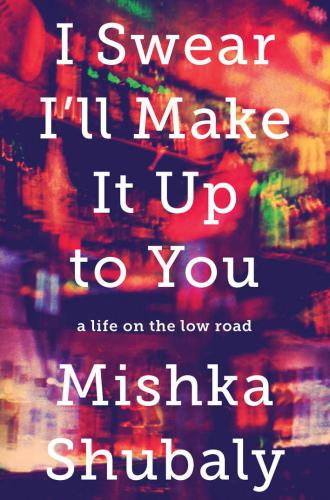
I Swear I'll Make It Up to You
A Life on the Low Road
کتاب های مرتبط
- اطلاعات
- نقد و بررسی
- دیدگاه کاربران
نقد و بررسی

January 25, 2016
In this memoir of darkness and redemption, singer/songwriter Shubaly describes his virulent romance with alcohol and his struggle to escape the toxic embrace by way of long-distance running. When Shubaly was 16 his father abandoned the family, condemning his wife and children to poverty. Shubaly plunged into a cycle of binges and blackout drunks while stumbling through miserable jobs, toxic relationships, a fiction M.F.A. at Columbia, and a fruitless music career in New York City. A chance run to retrieve a stranded bicycle led to a new obsession, one that allowed him to negotiate a truce with his demons. While Shubaly certainly doesn’t lack for powerful material—most notably his experience of a mass-shooting at Simon’s Rock—he profusion of tragedies tends to diminish their impact. His dark humor and mordant self-flagellation save the episodic narrative from monotony. Out of a cast of hundreds, only Shubaly’s father becomes a three-dimensional figure and their troubled relationship provides an emotional focus to the book.

January 15, 2016
A fevered memoir detailing how a surly bohemian, lost to alcoholism, was saved by marathon running. Shubaly, a musician and raconteur who's published several bestselling Kindle Singles through Amazon (The Long Run, 2014, etc.), is straightforward about the self-regard he drowned in booze and bad behavior. "For someone who had moved to NYC with the bald intention of getting famous," he writes, "my anonymity remained so pristinely intact one would think I'd been fighting to preserve it." The author attributes his decadent lost years to a high-drama childhood, including an estranged father and chaotic family, a sudden cross-country move, and general lower-middle-class angst. This disaster-prone adolescence culminated in admission to Simon's Rock, the "college for high schoolers," in time to witness one of the first school shootings of the 1990s. By then, he'd disappeared into punk rock and binge drinking: "Winter came and, with it, darkness....A shot of liquor in the bottom of a chipped glass glowed like it was radioactive: if I take this shot, I will puke tonight. I drank them all." In this tale of soused desperation, Shubaly dismisses as gullible tools everyone beyond his beleaguered siblings, lovers, and band mates, and he disregards the concept of editorial selectivity: passages focused on mooning over his college girlfriend or his gradual reconciliation with his father go on endlessly--yet he curtly dismisses the citywide trauma of 9/11. The arc of redemption, in which Shubaly forgoes alcohol for the rigors of "ultrarunning," is similarly repetitious, albeit loaded with the author's sense of personal triumph. "This was an accomplishment not even I could diminish," he writes. "There was no denying it. I was one of those top-tier wackjobs." Though Shubaly produces some humorous and trenchant observations about urban hipster culture, the craft and focus cannot match the grating level of self-absorption. A rambling, tedious narrative that may appeal to fans of James Frey-style, tough-guy confessionals.
COPYRIGHT(2016) Kirkus Reviews, ALL RIGHTS RESERVED.

























دیدگاه کاربران